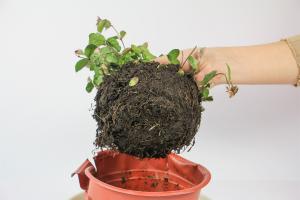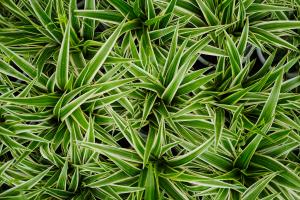Introduction:
Self-watering pots have revolutionized the way people approach the task of watering their potted plants. These innovative containers come with a built-in water reservoir, which means that plants can stay moist for a longer time without frequent watering. However, not all plants are suitable for self-watering pots. In this article, we will discuss some of the plants that do well in these pots and why they are a good choice.
Herbs:
Herbs are one of the best plants to grow in self-watering pots. They love a steady supply of water and can thrive in containers as long as they have adequate drainage. Some of the best herbs to grow in self-watering pots include basil, thyme, sage, parsley, and chives. These plants prefer bright light and can quickly wilt if they don't receive enough water, making them perfect for self-watering pots that provide a constant source of moisture.
Succulents and Cacti:
Succulents and cacti are excellent plants for self-watering pots because they can tolerate drought-like conditions. They store water in their leaves or stems, which means they don't need watering as frequently as other plants. However, it's essential to use a well-draining soil mix to prevent root rot. Some of the best succulents and cacti to grow in self-watering pots include jade plants, aloe vera, snake plants, and prickly pear.
Peace Lilies:
Peace lilies are popular houseplants known for their ability to purify the air by removing toxins. These plants thrive in low to medium light and prefer evenly moist soil. They are also tolerant of underwatering, making them a great choice for busy people who may forget to water their plants. Peace lilies also have a shallow root system, which makes them a good fit for self-watering pots that have limited space.
Spider Plants:
Spider plants are another great option for self-watering pots. They are easy to care for and can tolerate a wide range of conditions. These plants prefer bright but indirect light and thrive in slightly moist soil. The self-watering pot provides optimal growing conditions for these plants, allowing their roots to stay consistently moist without getting waterlogged.
Conclusion:
Self-watering pots are an excellent investment for those who want to simplify their plant care routine. However, it's important to choose the right plants for these containers. Herbs, succulents, cacti, peace lilies, and spider plants are just a few examples of plants that do well in self-watering pots. These plants have varying needs but share the ability to thrive in conditions where water is readily available. When choosing plants for your self-watering pot, consider their water requirements, sunlight needs, and root system to ensure they will flourish in their new home.

 how many times do yo...
how many times do yo... how many planted tre...
how many planted tre... how many pine trees ...
how many pine trees ... how many pecan trees...
how many pecan trees... how many plants comp...
how many plants comp... how many plants can ...
how many plants can ... how many plants and ...
how many plants and ... how many pepper plan...
how many pepper plan...































